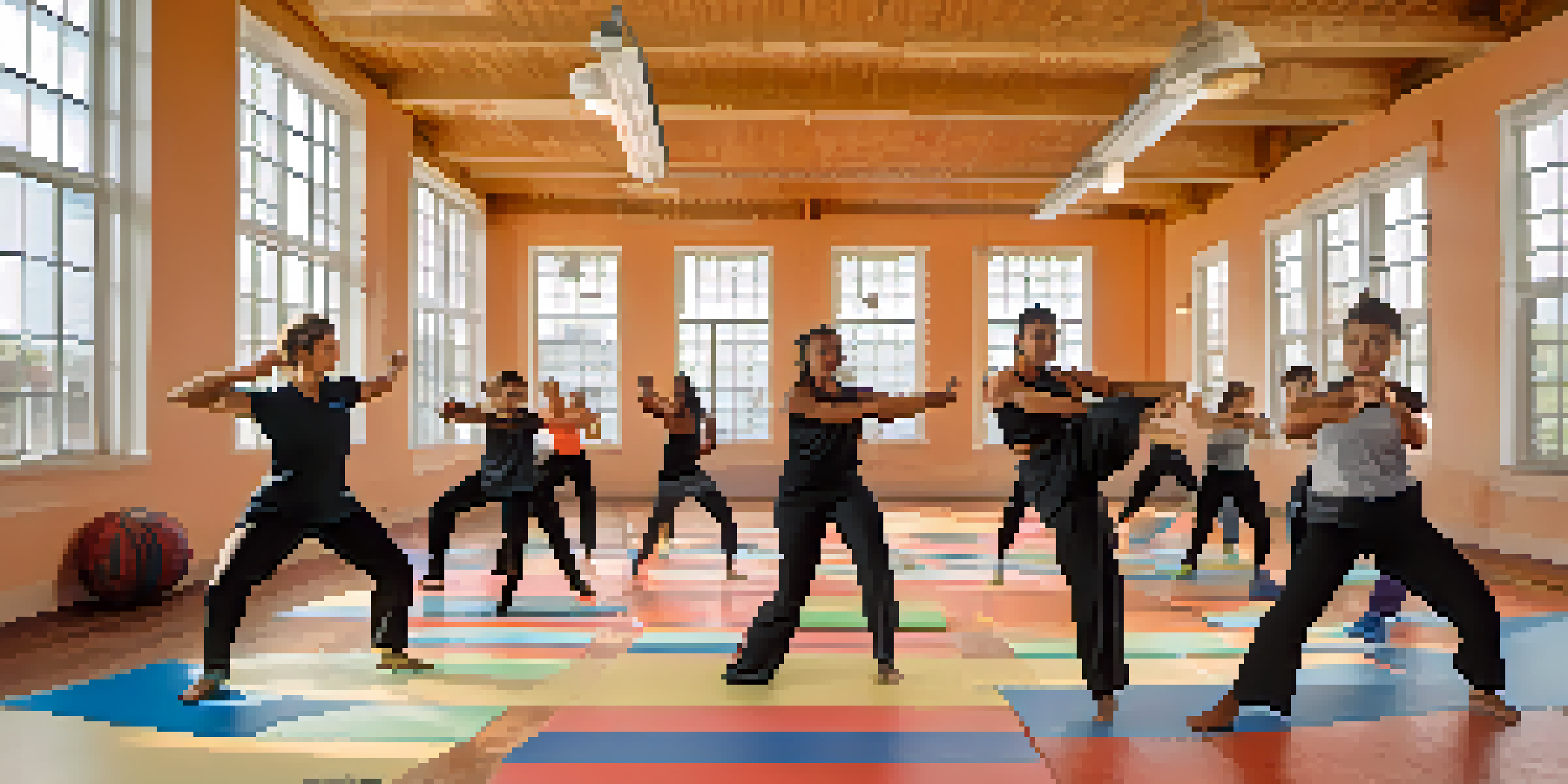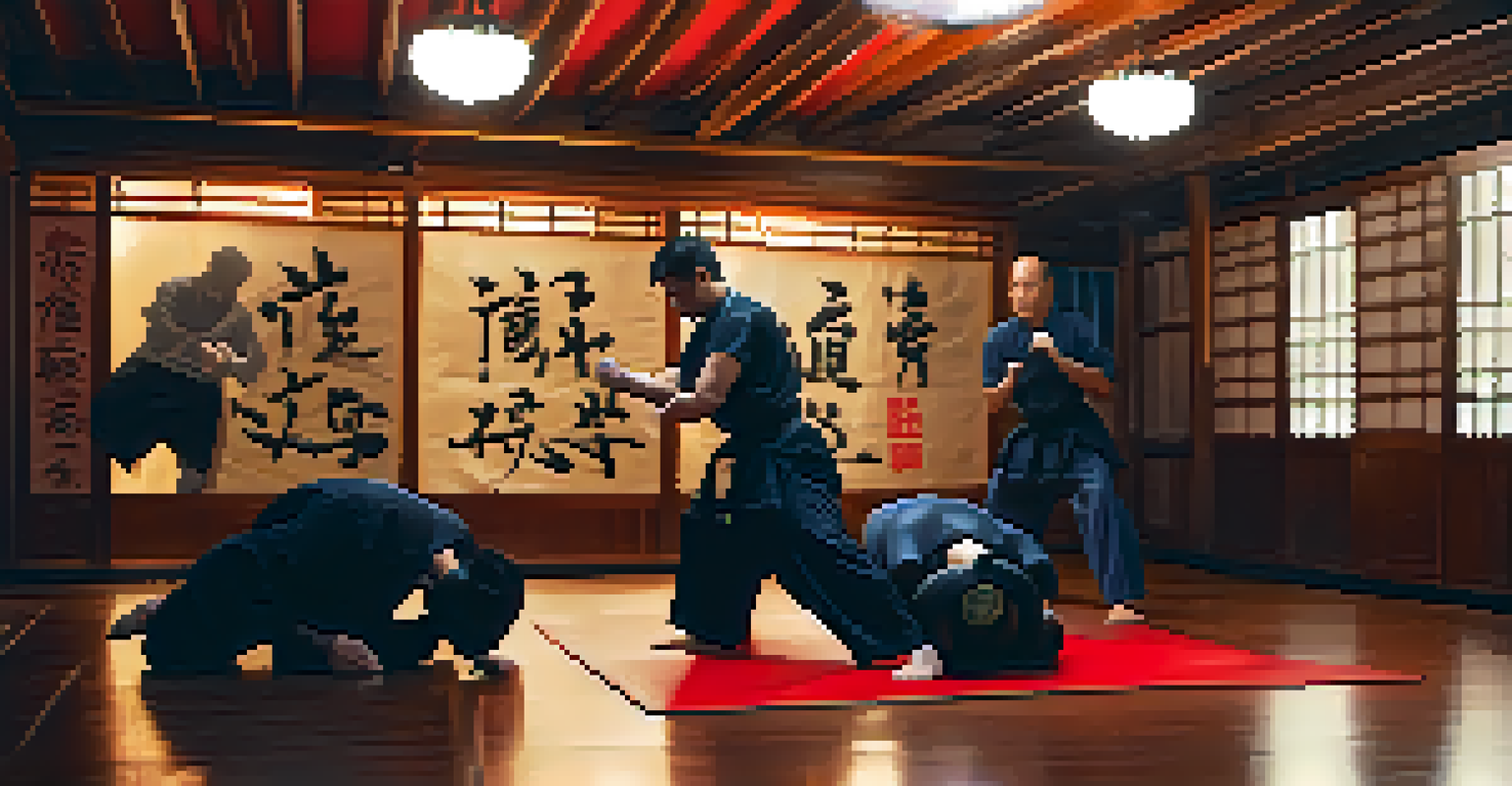Are Women Less Capable of Self Defense? Debunking Myths

Understanding Self-Defense: A Universal Skill
Self-defense is not inherently linked to gender; it's a skill that anyone can learn. While societal stereotypes often suggest that women are less capable in physical confrontations, the truth is that effective self-defense relies more on knowledge, technique, and awareness than on brute strength.
The best defense is a good offense.
Many self-defense classes are designed to empower individuals of all genders, focusing on strategies that leverage agility and smart decision-making. For example, a smaller person can effectively defend themselves by using their environment or employing techniques that target vulnerable areas of an attacker.
Ultimately, self-defense is about confidence and preparation, which are qualities that anyone can cultivate, irrespective of gender. Tackling the misconception that women are less capable begins with recognizing that the ability to defend oneself is accessible to all.
Myth #1: Women Are Physically Weaker Than Men
It's a pervasive myth that women are physically weaker than men, but this generalization overlooks the vast diversity within each gender. While it's true that, on average, men may have greater muscle mass, this doesn't determine an individual's ability to defend themselves in a self-defense scenario.

Self-defense training emphasizes technique over strength, showing that a well-timed move can neutralize a stronger opponent. For example, using leverage or an opponent's momentum against them can completely shift the dynamics of a confrontation.
Self-Defense is for Everyone
Self-defense is a universal skill accessible to all individuals, regardless of gender or age.
Moreover, many women are strong and athletic, breaking the mold of traditional gender roles. Focusing solely on physical strength ignores the critical mental aspects of self-defense, such as awareness and strategy, which can be equally or more effective.
Myth #2: Women Are Not Aggressive Enough
Another common myth is that women lack the aggression needed for self-defense. This stereotype fails to recognize that aggression is not about gender but rather situational response. When faced with a threat, many women instinctively tap into a fierce protective instinct.
Self-defense is not just a skill; it's a mindset.
Self-defense training often teaches participants to channel their emotions effectively, transforming fear into assertiveness. Techniques such as yelling or creating a scene can deter an attacker and serve as powerful tools to regain control in a threatening situation.
By redefining aggression as a natural response to danger, we can empower women to embrace their instincts. It’s crucial to remember that self-defense is about survival, and anyone can summon the necessary assertiveness when it truly matters.
Myth #3: Self-Defense Is Only for Young Women
The belief that self-defense is only pertinent for young women is another myth that needs debunking. In reality, self-defense is crucial for individuals of all ages, as attackers can target anyone, regardless of age or physical appearance.
Many self-defense programs are tailored to address the specific needs and concerns of different age groups. For instance, older women may focus more on situational awareness and de-escalation techniques, rather than physical confrontation.
Technique Over Strength
Effective self-defense relies on technique, awareness, and strategy rather than physical strength.
Moreover, empowering women of all ages to learn self-defense can foster a sense of community and support. Sharing experiences and knowledge can help break down barriers and encourage every woman to feel capable and confident in defending herself.
The Importance of Training and Education
Education and training play a pivotal role in self-defense. Many women find that taking self-defense classes not only equips them with practical skills but also boosts their confidence and self-esteem. Understanding how to assess a situation and respond appropriately can make a significant difference.
Self-defense training also emphasizes the importance of prevention. Being aware of your surroundings and recognizing potential threats can often prevent confrontations before they escalate. This proactive approach is a key aspect of self-defense that everyone should learn.
Incorporating self-defense education into schools and community programs can empower future generations. By teaching these skills early on, we can foster a culture of awareness and preparedness among all individuals, not just women.
Real-Life Examples of Women in Self-Defense
Numerous real-life stories illustrate how women have successfully defended themselves against attackers. For example, there are countless cases where a woman’s quick thinking and knowledge of self-defense techniques thwarted a potentially dangerous situation.
These stories serve as powerful reminders that self-defense is not just theoretical; it can be practical and effective. They show that women can and do successfully defend themselves, often using skills learned in self-defense classes or workshops.
Challenging Stereotypes Matters
Empowering women through self-defense training helps to dismantle societal stereotypes and fosters a supportive community.
Sharing these experiences helps to inspire others and dispel the myths surrounding women's capabilities in self-defense. It emphasizes the importance of education and training, highlighting that anyone, regardless of gender, can be prepared to protect themselves.
Challenging Societal Norms and Stereotypes
Challenging societal norms and stereotypes regarding women's self-defense is essential for creating a more equitable environment. Many cultural narratives reinforce the idea that women should be passive or dependent, which can undermine their confidence and willingness to learn self-defense.
By promoting stories of strong, capable women and encouraging self-defense training, we can shift the narrative. This not only empowers women but also challenges men to support their peers and advocate for equality in self-defense training and awareness.

Creating an inclusive dialogue about self-defense allows for a broader understanding of the skills needed to protect oneself. It’s about building a community where everyone can feel safe and prepared, regardless of gender.
Conclusion: Empowerment Through Self-Defense
In conclusion, the myths surrounding women's capabilities in self-defense are largely unfounded. By recognizing that self-defense is about skill, awareness, and preparation, we can empower individuals of all genders to take charge of their safety.
Encouraging women to engage in self-defense training not only builds their confidence but also fosters a community of support and strength. It’s time to move beyond stereotypes and embrace the reality that everyone has the right to defend themselves.
Ultimately, self-defense is not just about physical confrontation; it's about empowerment, awareness, and the ability to stand strong in the face of adversity. Let's champion the idea that self-defense is for everyone, and encourage all individuals to learn the skills that can protect them.